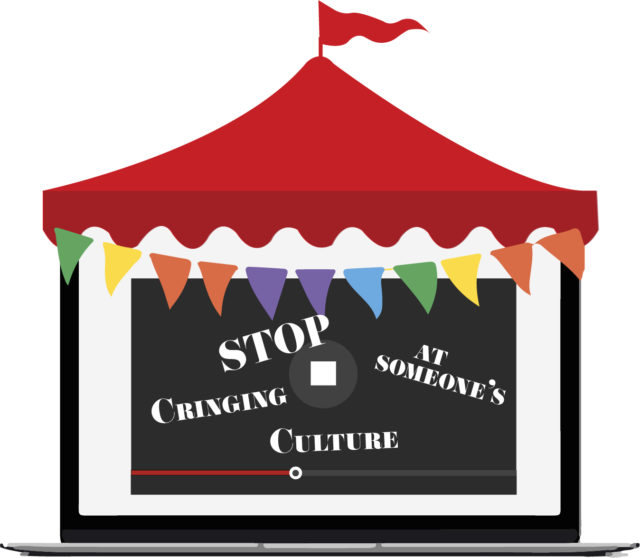Cringe videos and compilations have exploded in popularity in recent years, developing their own in-jokes among YouTube audiences.
In these videos, “cringe” is anything that elicits second-hand embarrassment. However, the hunger for that particular emotional reaction has cultivated a virtual “carnival freak show” of sorts where people are be ridiculed for videos posted of them.
The earliest versions of cringe culture existed on online image boards like 4chan, and others like Encyclopedia Dramatica and Kiwi Farms. In those communities, people like Christine Weston Chandler and video game creator Brianna Wu have almost endless obsessions over them: Chandler, for her eccentric life and comic strip, and Wu for her involvement in “Gamergate,” an online debate that attacked and doxed female game creators.
Cringe culture peaked during the mid 2010s with online commentary YouTubers that ridiculed online videos of peculiar individuals doing abnormal things. These things consist of anything from bad talent show performances, to shouting feminists or misspoken words on the nightly news.
The cringe community exploits people during unflattering moments, such as intense outrage or humiliation, for entertainment. Those who do not fit in contemporary society norms are particularly targeted for amusement.
In a viral video from November of 2018, a transgender woman is shown in a GameStop store arguing with the cashier. She is called “sir” several times by the attendant, and responds by shouting at the man behind the counter to address her by “ma’am.” The video exploded in popularity online and elicited comments like “Sir, your testosterone is showing” and “‘Do I look like a sir’ You sound like one.” The derogatory transgender slur “tranny” was littered in posts and memes about the event.
Videos like this one, that reach millions of people, can show people at their worst. A bad performance or a loss of temper is bad enough, but to have that terrible moment broadcast for potentially millions is horrifying. Like bullying, it can be easy to point and laugh at someone who might be different, peculiar or acting irrationally. But before contributing to the cynicism and ridicule, we should measure the weight of our words and actions, especially when we will rarely see the person on the other side of the screen.
The ability to impact people we will never meet in profoundly terrifying ways should make us want to proceed with caution. With the development of cringe as a modern form of entertainment, hatred and mockery can be spread around the world in a matter of hours. For those viewing media, it’s important to consider that videos are only a snapshot of a person, and can often capture the worst in a situation, without showing the whole scene. Discretion is required, and it should never be acceptable to attack or demean another person for their peculiarity, regardless of how they carry themselves.



